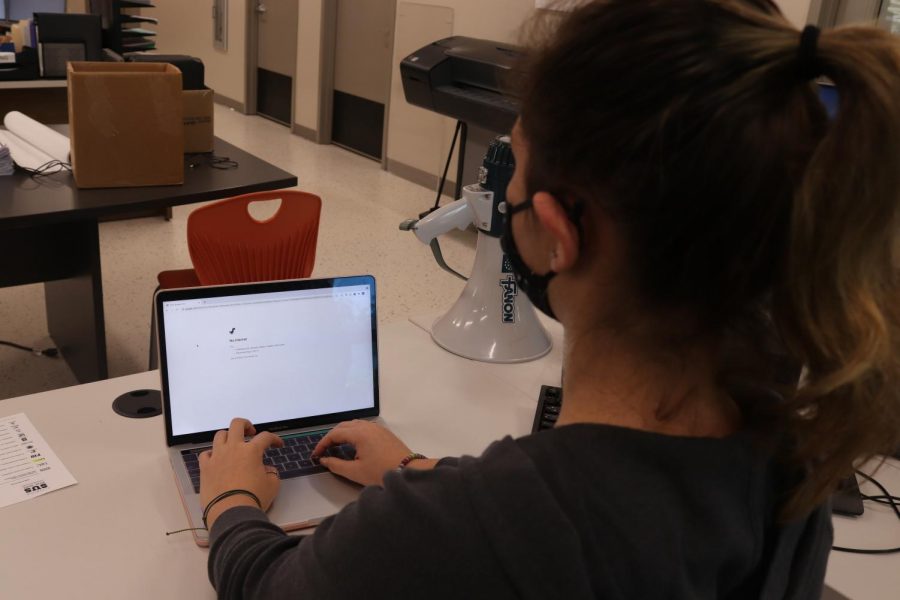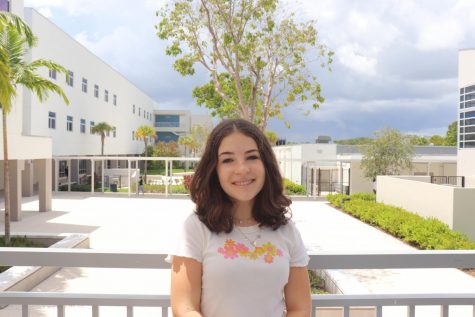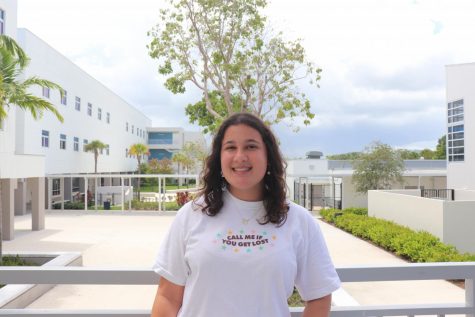Miami Dade Schools In-Person Return is Met With Connectivity Issues
Palmetto Senior and Office Aid Josie Blohm struggles to connect to the school wifi.
September 28, 2021
For the second year in a row, a series of Distributed Denial of Service attacks have compromised internet connectivity in all 392 Miami-Dade County Public Schools. The connectivity issues have impacted the lives of students and teachers alike as they navigate the 100% in-person return to school.
The DDoS attacks — a malicious attempt to increase internet traffic to a certain IP address — targeted the Dadeschools WiFi authentication server. The county is currently working in conjunction with local and federal law enforcement, AT&T and XFINITY to isolate where the DDoS attack came from, according to Miami Palmetto Senior High Assistant Principal Jesus Tellechea.
“The hacker took advantage of the period of time when the county was upgrading the system to start the DDoS attack,” Tellechea said. “They have slowed down the authentication process for students and teachers to log into the WiFi, effectively slowing the WiFi at Palmetto to a crawl.”
At the beginning of last school year, a student sent DDoS attacks to target the K-12 online learning platform My School Online. This prevented distance learning for the first three days of school, whereas this year, the DDoS attacks have continued to impact school connectivity well into the second month of school.
Connection at Palmetto has also slowed due to Miami-Dade County high school’s 7:20 a.m. start time. All updates for connection in the county generally begin at 5 a.m., and since classes at Palmetto start so early, many of these updates have not finished by the time school starts, according to Tellechea.
Due to the unreliability of the WiFi connection, teachers across Dade County have had to modify their lesson plans.
“The connectivity issues have significantly impacted my teaching, as all my lecture slides are on Google Drive,” Palmetto AP Biology and Honors Marine Science teacher Dr. Sarah Israel said. “This was a real hassle and caused my classes to get behind. I could not get into anything on my computer for the first couple weeks of school. At home, I finally found a solution: downloading my lectures to a flash drive.”
To help combat the connectivity issues, Palmetto administrators shared new links with teachers, allowing them to bypass the portal and instead have direct access to their grade book. While this has made it easier for teachers to navigate through the poor connection, it has not completely solved the issue.
“The county has begun putting safeguards in place to help get connection back to all schools, such as not allowing any devices outside of Dadeschools computers to login,” Tellechea said. “They did this to make sure that no attacks could come in from outside Dadeschools. Slowly they have been allowing more devices to log in, but it will take time until the connection is fully back up and running.”
Regardless, District Nine School Board Member Luisa Santos believes Palmetto should not have any connectivity issues to begin with.
“To me, it is unacceptable that a school like Palmetto that just received over $50 million to upgrade did not have connectivity prioritized [by the county],” Santos said.
Aside from the attack, however, the county continues to face connectivity issues — difficulty joining the WiFi, at-home connectivity to a device and access to personal devices — that District 9 has begun to resolve.
“We believe every child should have access to an excellent device and an excellent internet connection, both at home and at school, and we are in the process of gathering information to understand how far we are from that vision,” Santos said.
Santos said she and the eight other M-DCPS board members approved $100 million for devices and $62 million for further connectivity support for all M-DCPS. She and the other members hope that with this item, they can alleviate some of the connectivity issues the district has faced.
“We finally have the funds to address some of these issues. We feel like we have to do everything in our power to get it right,” Santos said. “It’s important…to ensure that the funds we have approved actually get spent in a way that is going to serve students best.”
In order to gain student insight into the recent connectivity issues in District 9, specifically regarding in-school WiFi connection, Santos oversaw a three-week long connectivity survey as a part of the Office Fellowship, a biannual program for M-DCPS students to become further involved in the programs and policies passed in the county.
“I think Luisa and her team are taking [connectivity] very seriously,” Palmetto junior and Policy Fellow for the Office Fellowship Luke Yang said. “Our policy team is actually drafting an item to combat the digital divide and connectivity issues throughout District 9.”
The survey campaign, created by the Policy team on the Office Fellowship, allows any M-DCPS student that registered for the survey to input their experience with the WiFi connection at school on a daily basis. Once the weeks-long survey ends, Santos plans on gathering the data to determine the most efficient way to solve the WiFi issues throughout the county. The results of the survey should come out by mid October.
To further pinpoint the source of connectivity disparity occurring throughout District 9, Santos plans on visiting certain Miami-Dade County schools with an Information and Technology Services Department representative in October.
“I want rapid, reliable WiFi and internet at every single school. I want teachers and students to have devices that are upgraded every year. I want every student at home to have reliable and fast internet. I want every stakeholder in M-DCPS to have the digital literacy skills to actually navigate today’s world,” Santos said.
For now, however, connectivity issues continue to persist throughout M-DCPS schools.
Students interested in joining the Luisa Santos Office Fellowship Class III can visit luisasantos.com/fellowship. Applications are available starting Oct. 1.










